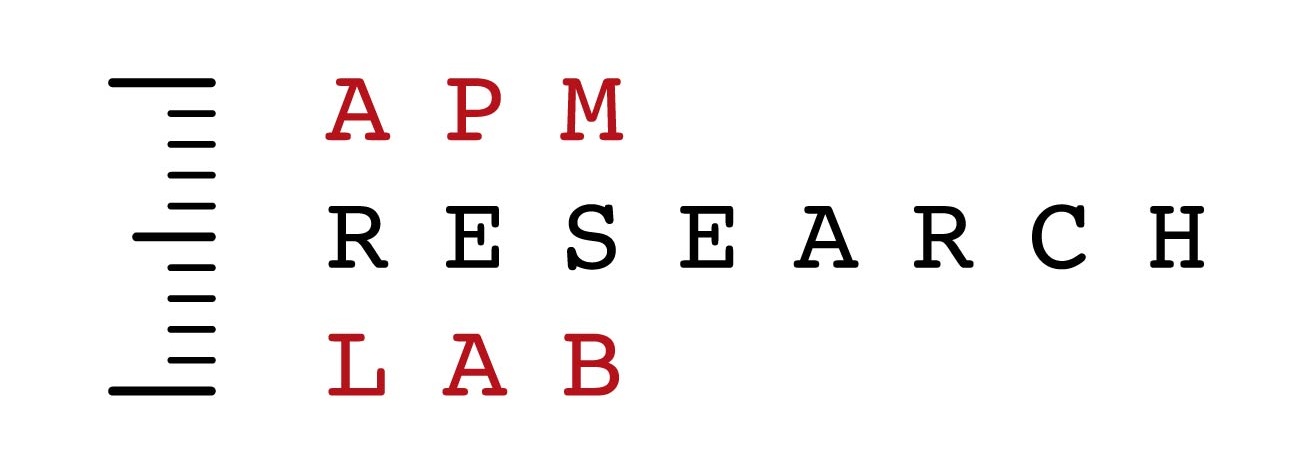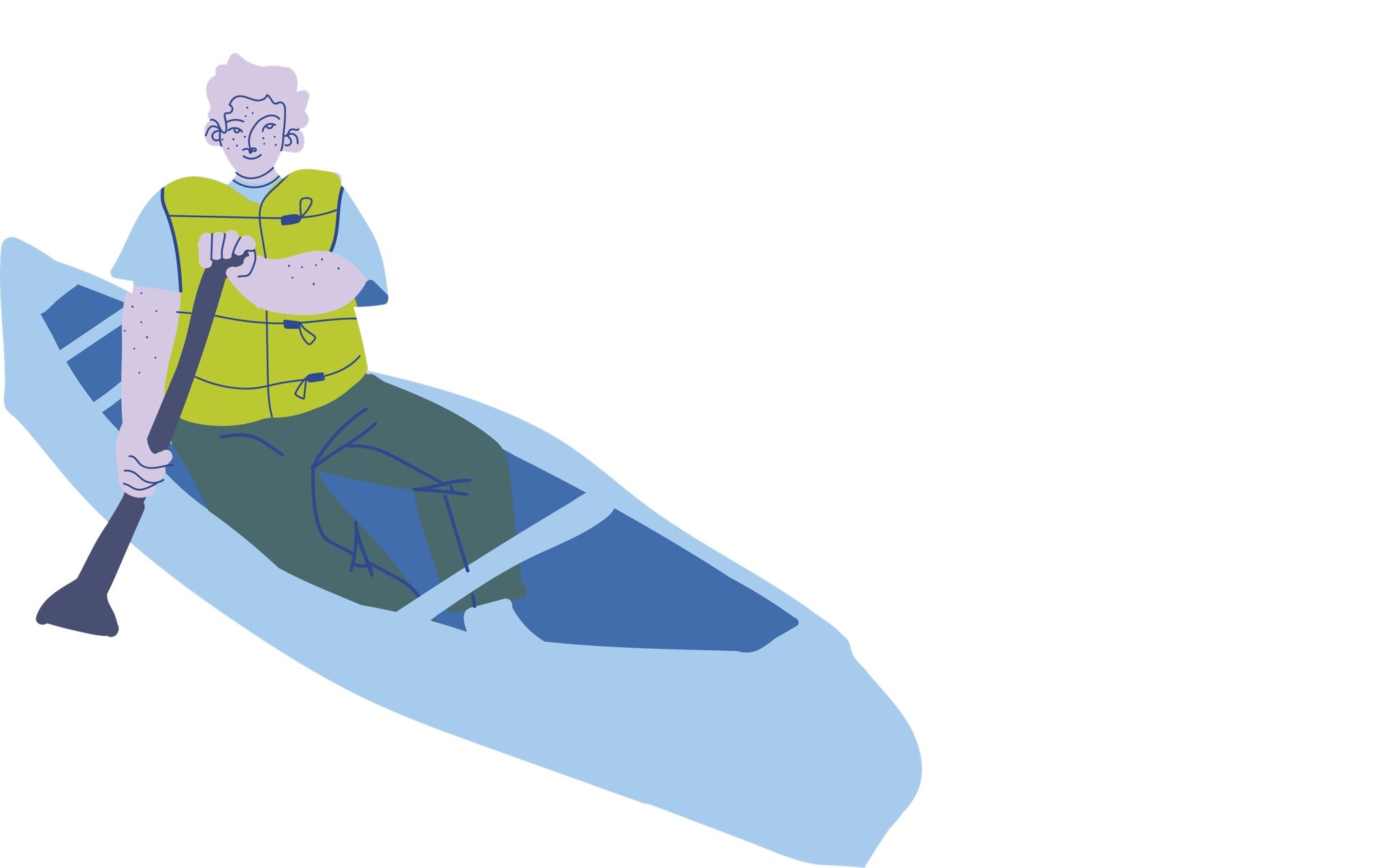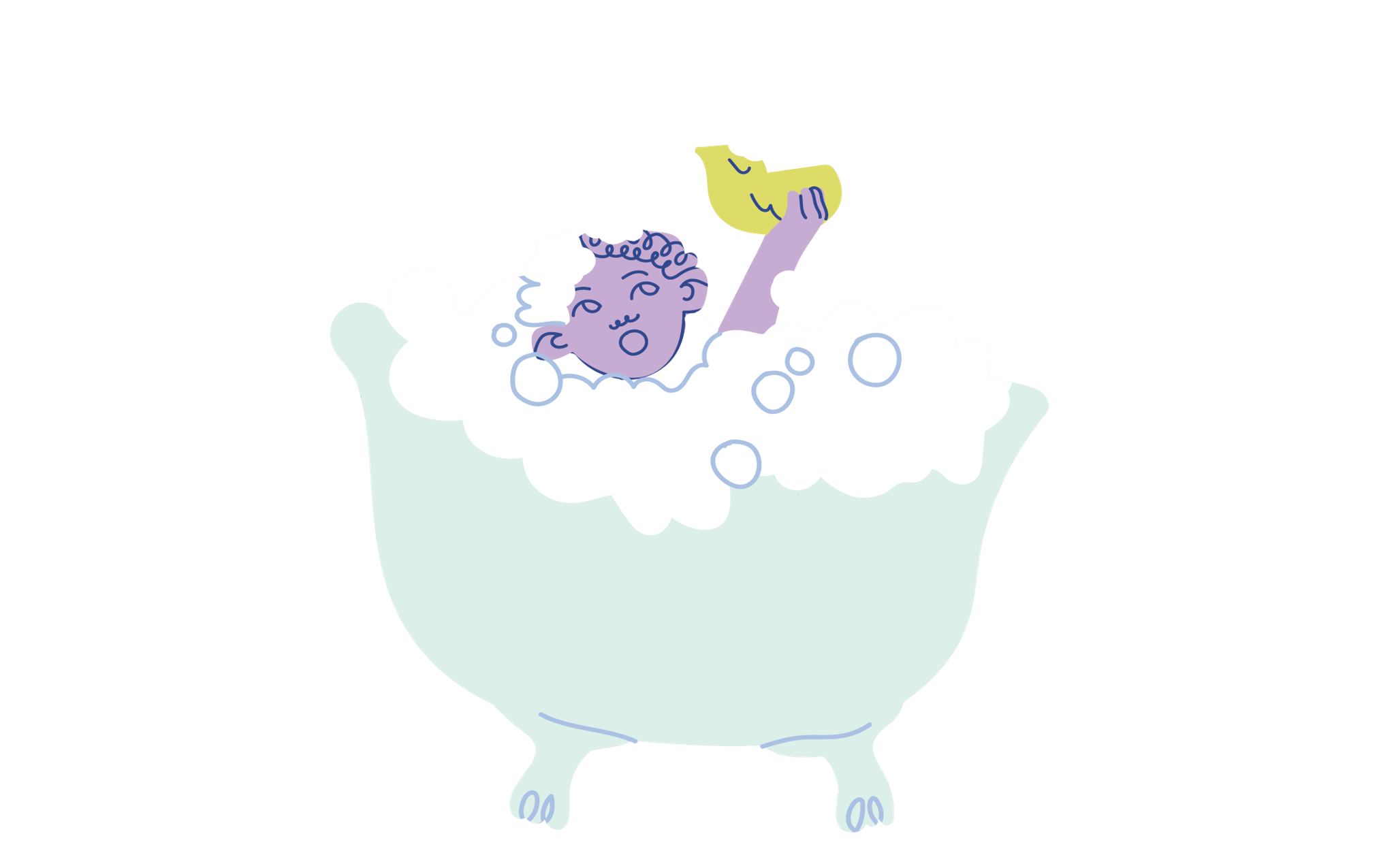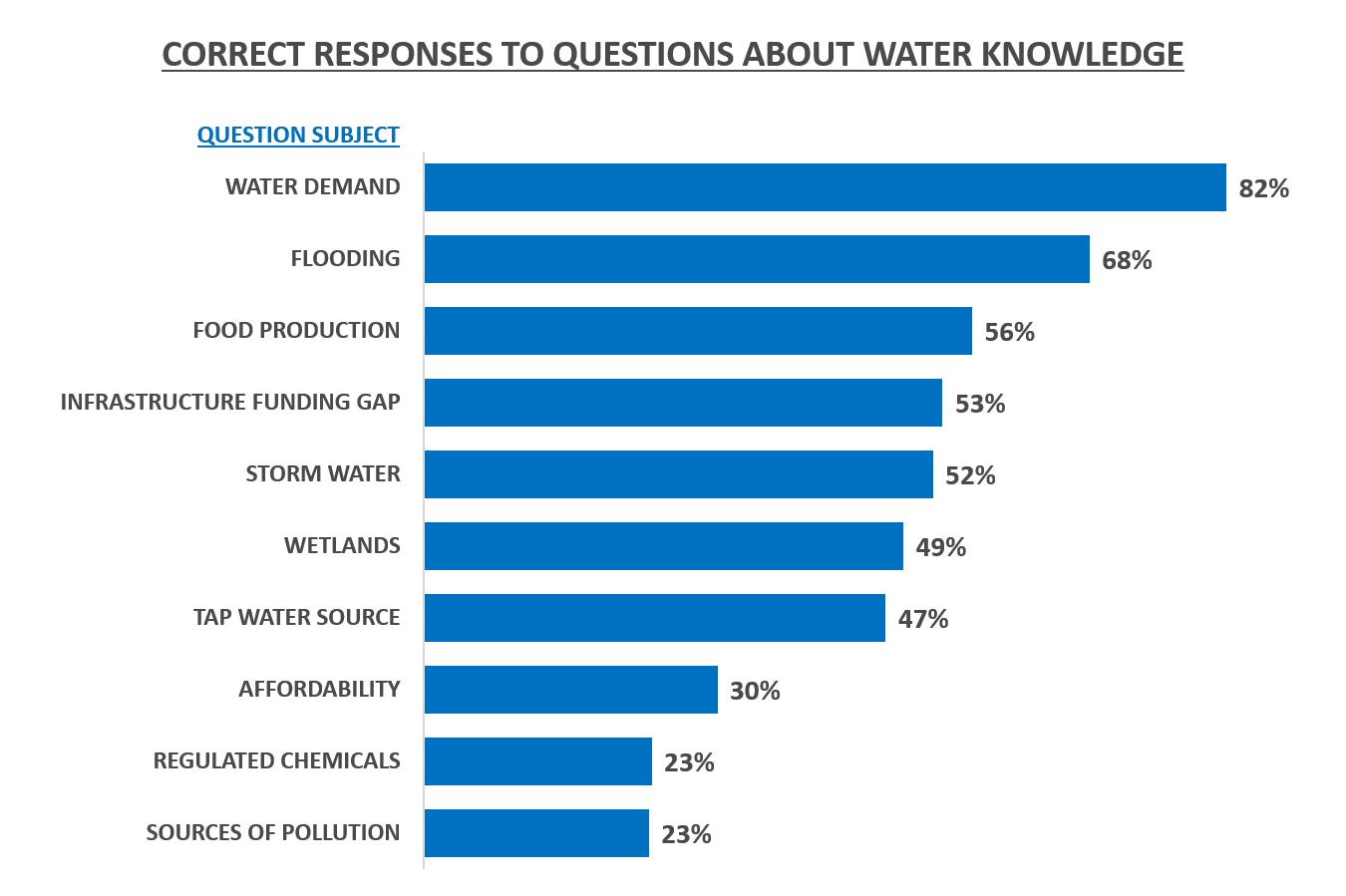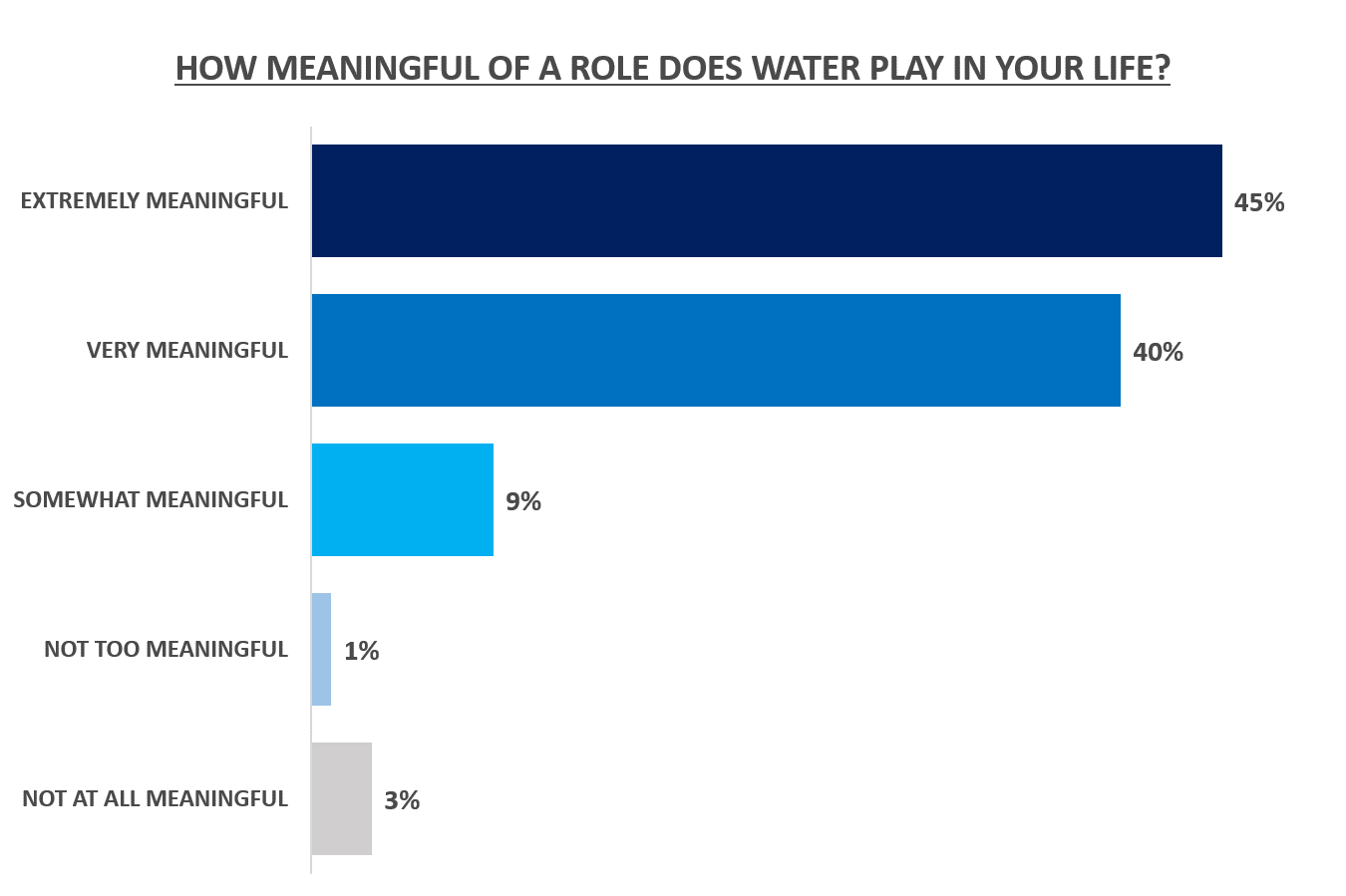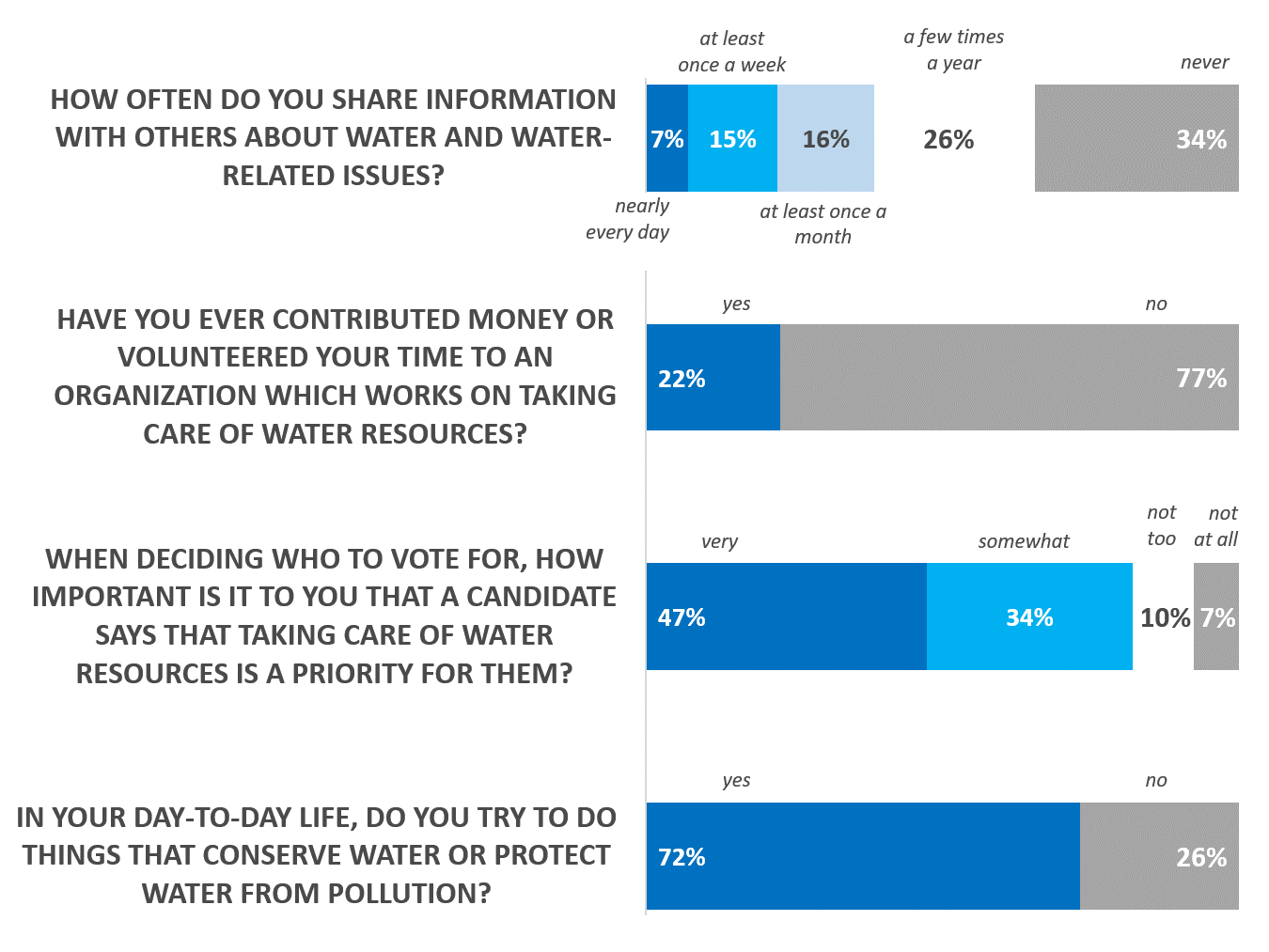WATER + US SURVEY: AMERICANS ARE CONCERNED about water but know little about the facts
RELATED STORIES
LAB NOTES: FARMERS HAVE AN EDGE ON THE REST OF US WHEN IT COMES TO WATER KNOWLEDGE, BUT THEY STILL HAVE BLIND SPOTS
LAB NOTES: WHAT GROWN-UPS THINK CHILDREN SHOULD LEARN: IDENTIFYING FALSE INFORMATION, MENTAL HEALTH, THE ECONOMY, AND WATER PROTECTION
THE WATER MAIN: HOW WE THINK, FEEL AND TAKE ACTION ON WATER
FARM JOURNAL: A COMMUNICATOR’S ROADMAP FOR ENGAGING WITH U.S. FARMERS AROUND WATER CHALLENGES
by APM RESEARCH LAB STAFF | May 14, 2020
Our nonpartisan, nationally representative survey, conducted in collaboration with the Water Main, asked a wide-range of questions about water-related topics in the United States: Respondents were asked how much they know about water issues and what kind of personal connections they feel and what concerns they have about water.
The results show that while Americans say they care about water-related issues and feel strong emotional connections to water, in reality, they know relatively little about the current state of water infrastructure in the U.S.
APM Research Lab created scales to evaluate the survey’s results across various categories, including knowledge, connection and concern, and action.

APM Research Lab asked 10 questions, each of which probed a different water-related issue—from pollution and regulation to demand and affordability.
In the knowledge category, respondents were asked questions that indicated how much they know about water and water-related issues. Overall, people answered fewer than half the 10 questions correctly, but their performance also varied considerably among topics.
For example, a majority of respondents knew that demand for water is likely to increase in coming years and that floods will probably become more common. However, most people struggled to correctly answer questions about water affordability and pollution.

The connection and concern categories measured people’s personal feelings and their worries about water. Overall, respondents scored higher on these questions than they did in the knowledge category.
More than four in five people said water plays a meaningful role in their lives, and nearly all thought it is important for children in the U.S. to learn more about protecting water resources.
Similar numbers of respondents—more than four in five— were concerned about the future of water infrastructure and future access to water resources in the United States, and more than half of people said they worry about drinking water from their taps at home.

The final category—action—measured how much people engage in conservation.
A majority of people said they take some action to protect water in their daily lives. Nearly three-quarters of American adults try to conserve water or protect water from pollution day to day, and nearly half said that it is very important for political candidates to talk about water issues to earn their votes.
However, less than 40% of people said they share water-related information at least once a month, and only one in five Americans donated time or money to organizations that take care of water resources.
